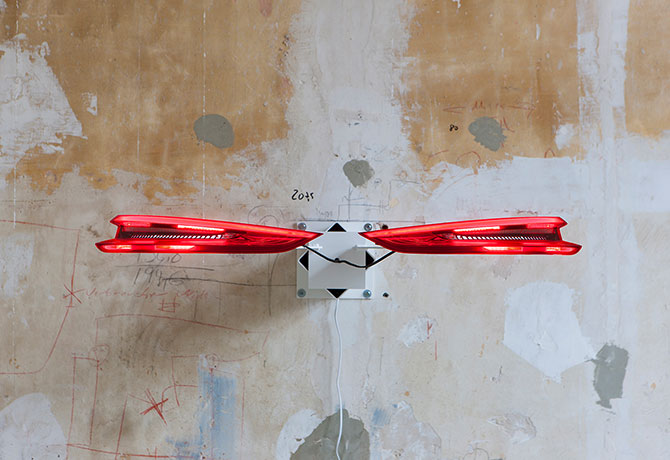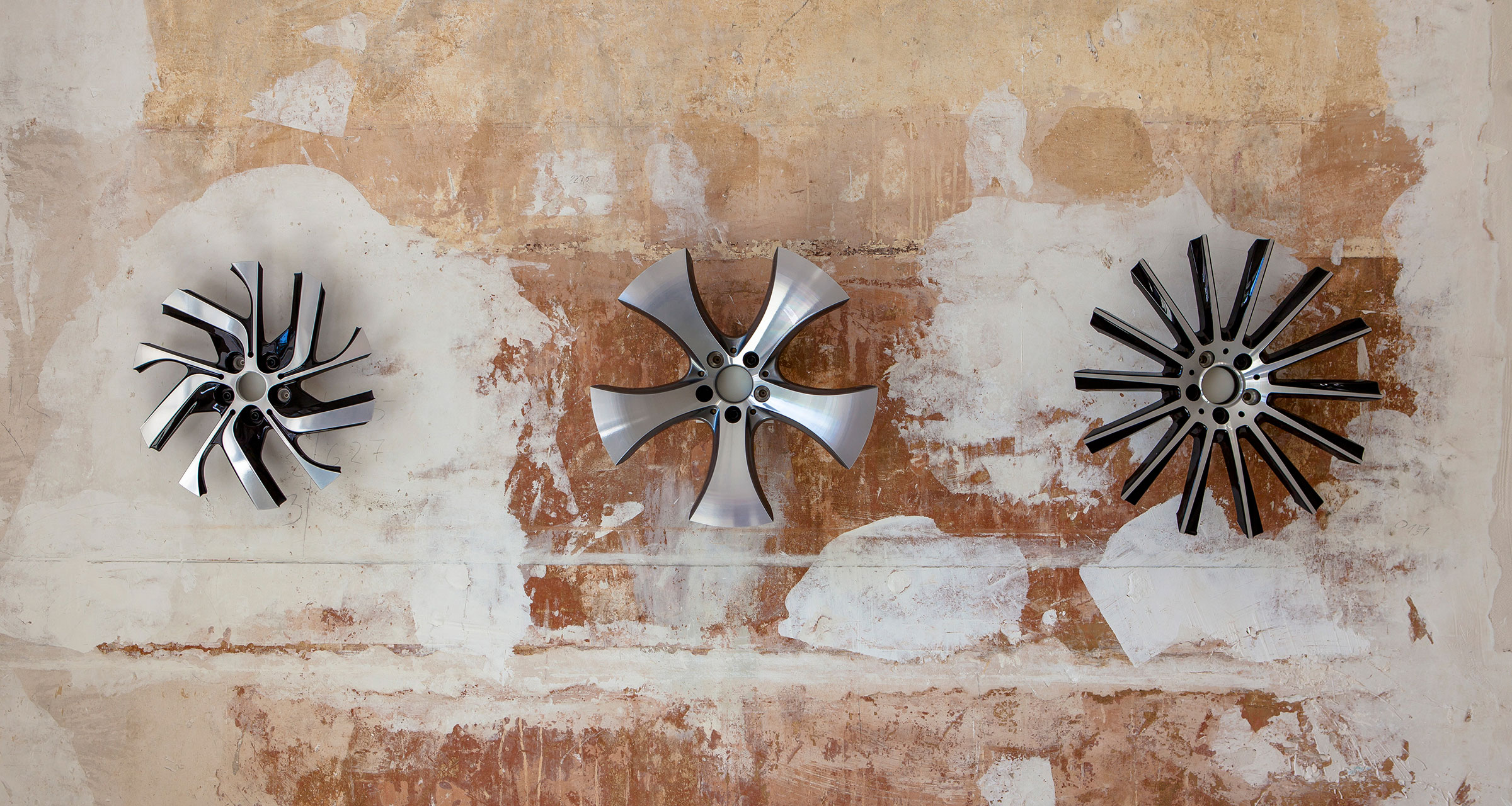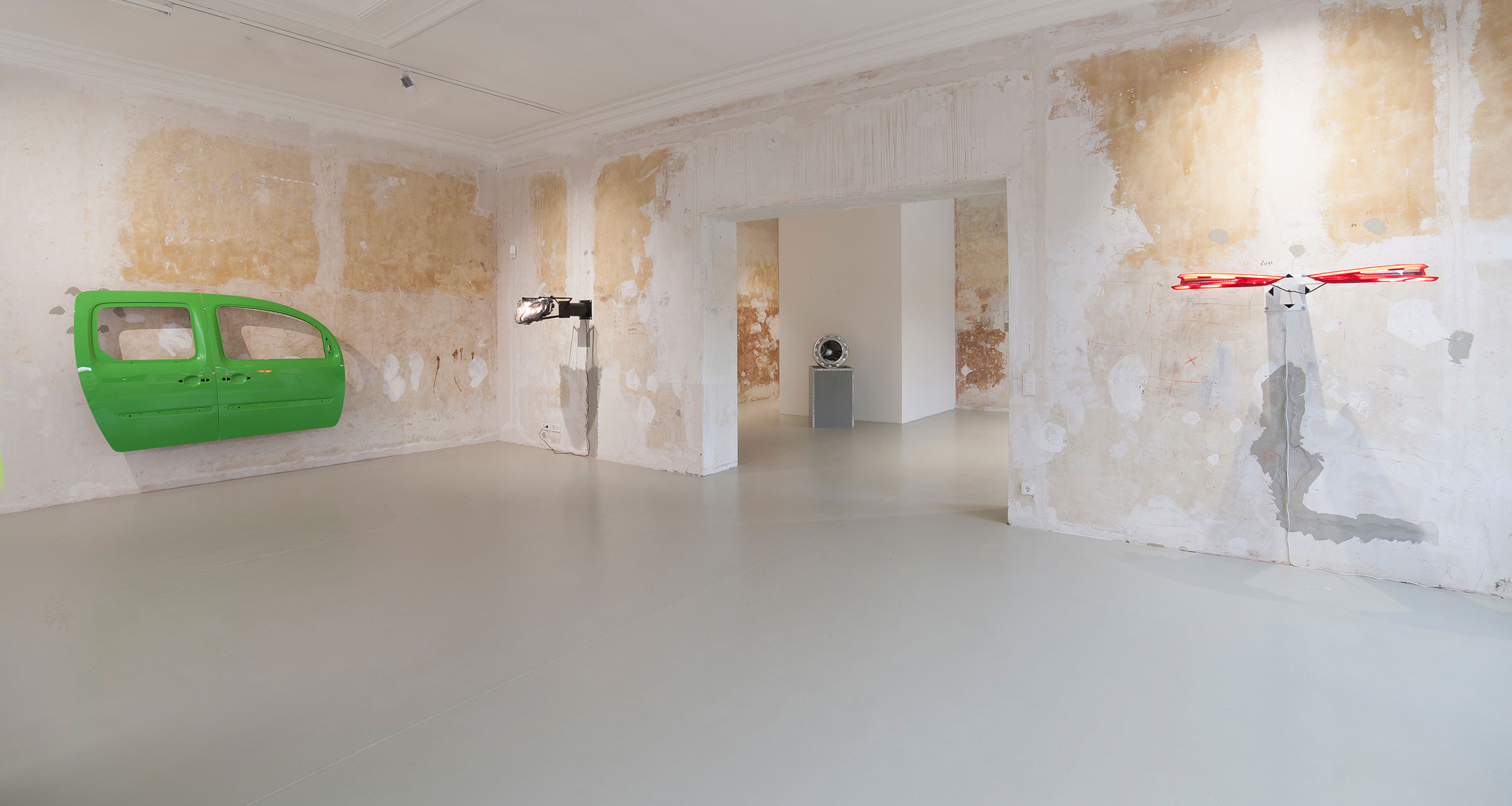YNGVE HOLEN
Yngve Holen forms technical everyday products into new objects taken out of their original context. In doing so, he alienates or stylizes them in such a way that they take on an anthropomorphic form. The headlights of a car suddenly have a soul, they have a face that seems to look at the viewer, a wheel rim appears as something vegetable-like. This is the disturbing condition humans find themselves in, in relation to technical progress and their technological environment. Yngve Holen develops the principle of sculpture according to the groundbreaking “Pissoir” by Duchamp further: He transforms his readymades again and again posing questions about the body: What is it made up of, how is it treated and mediated and which role does technical evolution play in the biological one? Considering the growing importance of an optimized and well-designed human body in society, Holen studies the deconstruction of generally accepted brand products and machines. Human bodies live, machines function – or is this interchangeable for both? In a world where physical and technical performance goes hand in hand with the intermingling of the real and the virtual world, is human perception still authentic and free from manipulation?
Yngve Holen was born in Braunschweig in 1982.



